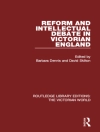This volume examines the way in which various strands of left thought have addressed the National Question.
The re-emergence of debates on the decolonisation of knowledge has revived interest in the National Question, which began over a century ago and remains unresolved. Tensions that were suppressed and hidden in the past are now being openly debated. Despite this, the goal of one united nation living prosperously under a constitutional democracy remains elusive. This edited volume examines the way in which various strands of left thought have addressed the National Question, especially during the apartheid years, and goes on to discuss its relevance for South Africa today and in the future. Instead of imposing a particular understanding of the National Question, the editors identified a number of political traditions and allowed contributors the freedom to define the question as they believed appropriate – in other words, to explain what they thought was the Unresolved National Question. This has resulted in a rich tapestry of interweaving perceptions. The volume is structured in two parts. The first examines four foundational traditions: Marxism-Leninism (the Colonialism of a Special Type thesis); the Congress tradition; the Trotskyist tradition; and Africanism. The second part explores the various shifts in the debate from the 1960s onwards, and includes chapters on Afrikaner nationalism, ethnic issues, black consciousness, feminism, workerism and constitutionalism. The editors hope that by revisiting the debates not popularly known among the scholarly mainstream, this volume will become a catalyst for an enriched debate on our identity and our future.
عن المؤلف
Edward Webster is Distinguished Research Professor in the Southern Centre for Inequality and founder of the Society, Work and Development Institute Studies at the University of the Witwatersrand, Johannesburg












